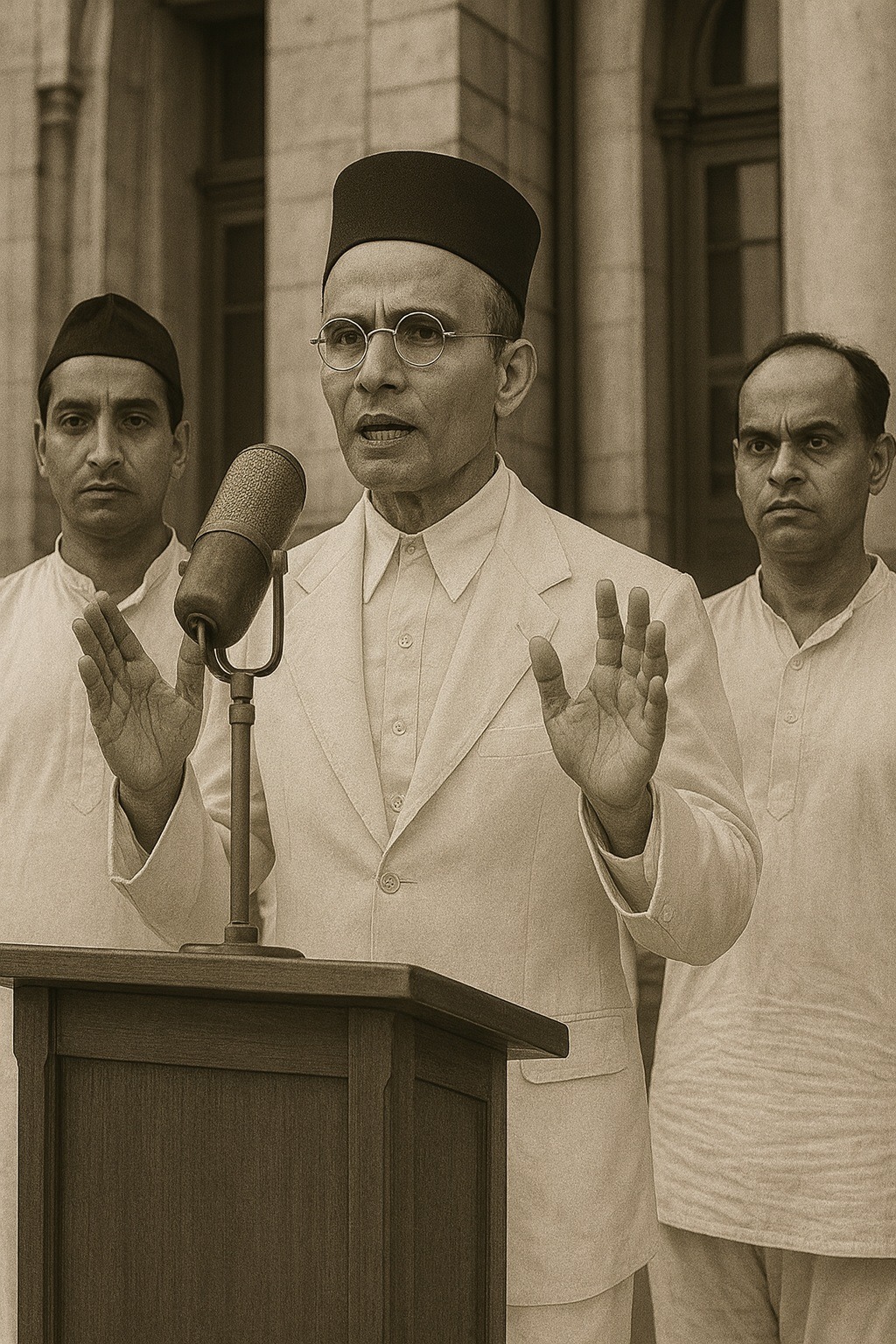Among the many facets of Vinayak Damodar (Veer) Savarkar’s personality – the revolutionary freedom fighter, the writer, the social reformer – one that stands out powerfully is that of the orator. Savarkar’s speeches were not mere acts of persuasion; they were performances of conviction, intellect, and strategic foresight. His voice carried both moral authority and political intent, echoing his belief that words, when charged with purpose, could contribute to national awakening.
Clarity of Purpose
Savarkar’s oratory was defined by its precision. He rarely indulged in ambiguity or ornamentation. Each speech laid out a clear vision — diagnosing the social and political ills that plagued India and outlining concrete remedies. Whether addressing caste reform, national unity, or Hindu consolidation, his message was lucid, forceful, and unflinching. The hallmark of his style was accessibility without oversimplification — clarity sharpened by intellect.
Emotional Intensity
Behind his reasoned arguments burned a profound emotional energy. Savarkar’s speeches could ignite national and patriotic sentiments, instill the feeling of collective belonging and cultural pride, or summon his listeners to self-sacrifice. He spoke not merely to inform but to transform. He appealed to the listener’s sense of duty and destiny, and subsequently to call for immediate action among them. The emotional tone of his voice turned abstract ideas like freedom and unity directives toward engagement
Strategic Framing
Savarkar was a pragmatic and realist who understood that idealism divorced from power was useless. His speeches often balanced moral conviction with pragmatic insight. He spoke of strength as a virtue, reminding audiences that righteousness without the means to defend it is fragile. His rhetoric framed politics as a contest of will and strategy – where survival demanded adaptability, cohesion, and courage.
Scholarly and Literary Depth
Despite their passionate tone, Savarkar’s speeches were deeply erudite. A scholar of history, philosophy, and literature, he often drew on the Bhagavad Gita, epics like the Ramayana, and historical precedents from Greece, Rome, and Italy’s Risorgimento, especially referring to Giuseppe Mazzini. His oratory bridged the ancient and the modern, blending cultural symbolism with rational analysis — a hallmark of his intellectual method.
Final Thoughts – Contested Reception & the Power of Words
To his admirers, Savarkar’s speeches were a clarion call to national awakening — bold, uncompromising, and visionary. To critics, they could seem austere or domineering, reflecting his insistence on discipline and ideological coherence. Yet even his opponents acknowledged his commanding presence and the force of his articulation. When Savarkar spoke, he did more than deliver ideas — he embodied them. His words were extensions of his conviction that freedom required both intellect and strength. He believed speech was not an end in itself but a weapon of national awakening, one that must always be followed by action.
💭 What do you think? How did Savarkar’s style of oratory differ from that of other nationalist leaders such as Gandhi or Nehru? Can powerful rhetoric be considered a form of political action in itself — or must it always lead to concrete outcomes? Do you think Savarkar’s emphasis on strength and realism diluted or deepened his moral message? In what ways did Savarkar’s speeches bridge ancient Hindu philosophy and modern nationalist strategy? Is Savarkar’s belief that “freedom requires both intellect and strength” still relevant in contemporary India? How might Savarkar’s rhetorical method inform public communication and leadership in present-day democracies?
👉 Share your thoughts in the comments below!


Leave a Reply